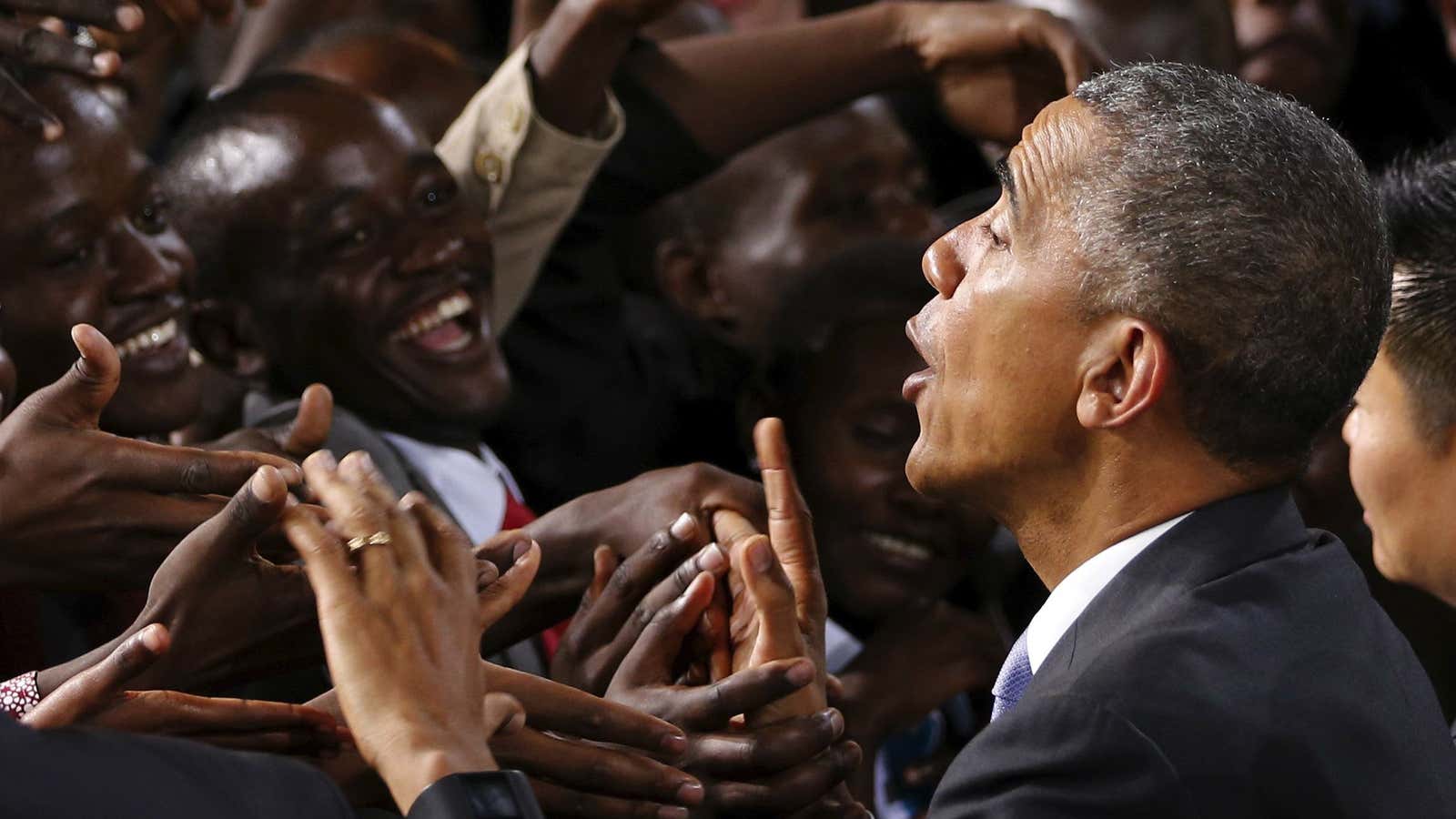Speaking to thousands from a sports stadium in Nairobi, US president Barack Obama took the country to task over corruption and the oppression of women.
“I don’t want everybody to get too sensitive,” Obama said. “But the fact is, too often here in Kenya, as is true in other places, corruption is tolerated because that’s how things have always been done…Here in Kenya, it’s time to change habits.”
[protected-iframe id=”f657aa0c535948ddccc1fcc243540906-39587363-37717567″ info=”http://swf.tubechop.com/tubechop.swf?vurl=NjwRCl59eys&start=2210.68&end=5396.9&cid=6500956″ width=”425″ height=”344″]
Government corruption is rampant in Kenya, which is seen as one of the most corrupt countries in the world. It was ranked 145th out of 177 by Transparency International last year.
In a speech capping off his two-day visit to his father’s homeland, Obama also compared sexism in Kenya to Americans who hold on to the Confederate flag—which is frequently used as a symbol by US white supremacist groups.
“Every country and every culture has traditions that are unique and help make that country what it is, but just because something is part of your past doesn’t make it right, it doesn’t mean it defines your future,” he said.
“Around the world there is a tradition of oppressing women and treating them differently and not giving them the same opportunities, and husbands beating their wives, and children not being sent to school. Those are traditions. Treating women and girls as second-class citizens. Those are bad traditions: they need to change.”
Obama, the first sitting US president to visit Kenya, did not bring up the issue of gay rights in his speech. In a joint press conference yesterday with Kenyan president Uhuru Kenyatta, the US president said the idea that anyone should be “treated differently or abused because of who they love is wrong.”
Obama also related his own journey—from a young graduate who slept on a cot during his first visit to Kenya to becoming arguably the most powerful person in the world—to that of Kenya’s youth.
“When it comes to the people of Kenya, particularly the youth, I believe there is no limit to what you can achieve. A young, ambitious Kenyan today should not have to do what my grandfather did and serve a foreign master. You don’t need to do what my father did and leave your home to get a good education and access to opportunity. Because of Kenya’s progress, because of your potential, you can build your future right here, right now.”
